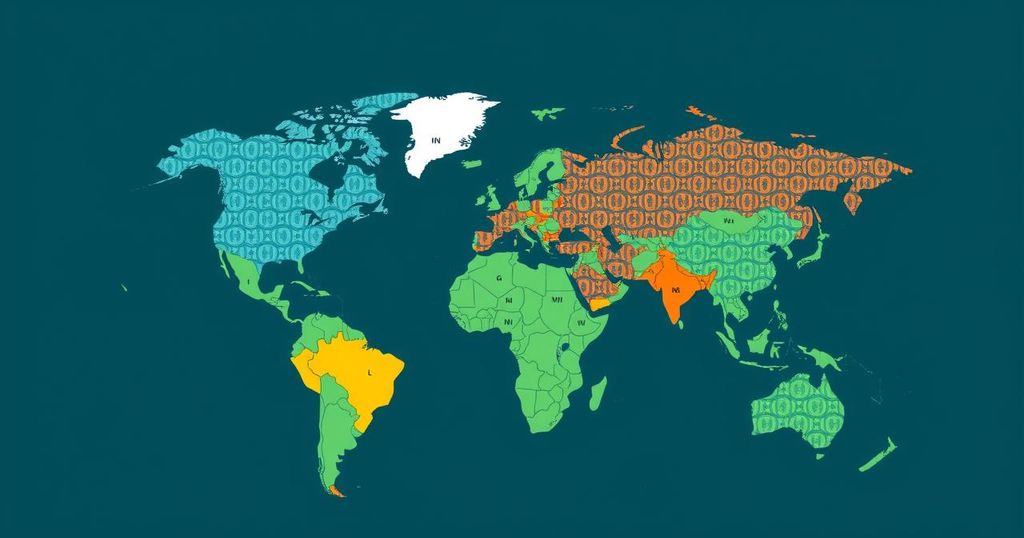At COP29, nations are urged to secure $1 trillion annually in climate finance for vulnerable countries, amidst political tensions and Argentina’s withdrawal. Developing nations stress the need for significant commitments to implement climate strategies. The talks illustrate the division between nations, impacting the global response to climate change and financial aid.
During the COP29 climate summit, nations aimed to secure $1 trillion annually in financing for developing countries most at risk from climate change. However, political tensions marred the discussions, exemplified by Argentina’s withdrawal of its delegation amid disagreements about funding and broader global political climates. Experts stressed that substantial financial commitments are essential for developing nations to enact ambitious climate strategies by COP30 in Brazil. The COP29 negotiations faced significant challenges as increased financial commitments and unity amongst nations proved elusive. While a previous goal of $100 billion annually had been inadequate, expectations now call for this figure to rise to between $1.3 trillion and $1.5 trillion by 2035. Tensions between developed and developing nations were evident during the meeting, exacerbated by the changing political landscape and concerns regarding the United States’ participation under a new administration. Amidst the backdrop of these negotiations, multilateral development banks pledged to escalate their climate financing contributions, while some nations like Azerbaijan announced substantial investments to support their transition to more sustainable practices. Critics noted that without bold commitments from wealthier nations, the ability of poorer countries to address climate change will remain severely compromised. The conference’s tone reflected growing divisions, with key nations absent from the discussions. Argentina’s abrupt decision to withdraw underscored the diminishing trust and cooperation among participants in the climate dialogue. In response to heightened geopolitical tensions, international observers voiced concern over the implications of such withdrawals on the credibility of nations in securing future climate finance. Eventually, the success of COP29 will depend on political will and collaboration amongst global players facing the escalating climate crisis.
The COP29 climate summit represents a critical moment for global climate negotiations, where countries must confront the urgent need for increased funding to combat climate change. Developing nations, particularly the most vulnerable, require substantial financial support to meet climate goals and implement effective adaptation strategies. With previous commitments proving inadequate, the conference seeks to establish a new financing framework that can accelerate progress towards the global climate agenda while addressing existing geopolitical tensions.
The COP29 summit is at a crucial junction, with the pressing need for $1 trillion in annual climate financing underscoring the urgency of cooperative international action. As disagreements and political tensions threaten the efficacy of global climate actions, achieving unity and commitment from both developed and developing countries remains essential to combating the global climate crisis. A transparent and collaborative approach will be vital to secure the necessary funding and enhance the credibility of nations participating in these discussions.
Original Source: tuoitrenews.vn






